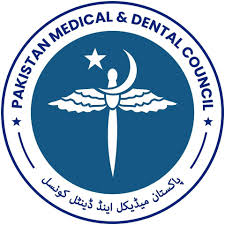Impact of Mentor-Mentee Relationship on Autonomy development of Mentees in Health Professional Education
DOI:
https://doi.org/10.37018/JFJMU/KHA/3622Keywords:
Mentoring, Autonomy support and Medical studentsAbstract
Background: There is growing evidence in literature on how student autonomy promotes motivational and well-being in medical students. Now a day there is lots of stress on medical students, mentoring is a simple technique to support our students but how mentors are to be train to give effective support is another challenge. Our study aims to explore the awareness of mentors on impact of mentor-mentee relation on autonomy development of mentees in health professional education. Mentor-mentee relationship can supports or constrain autonomy development of mentees this study explored the phenomenon from mentor perspective.
Methodology: Qualitative case study design and interpretivist paradigm was used; study duration was six months in bahria university health sciences campus. Data was collected using unstructured interviews until data was saturated. Four individual interviews of mentors using video eliciations, in which mentors reflected on their recent mentoring interaction with mentees and two focus group discussion of 90-120 minutes duration. Eight mentors were included in each focus group discussion. Total of twenty mentors participated in study by fulfilling inclusion creteria. Open-ended non-directive questions were asked. Self- determination theory was used for guiding interviews. Pattern matching was used for data analysis, it seeks to condense the participant’s response to thematic units and synthesis of essential themes in order to describe them.
Results: Essential themes were identified after data analysis, “Conversation on behavior change”, “uncertainty on the extent to which they impact autonomy” and “social Factors”
Conclusion: Mentors were not certain on the extent to which they impact autonomy in mentees. Mentors training is required to develop skills of autonomy- supportiveness. Mentors should have clear guidelines regarding autonomy supportiveness well-being and professional growth. Autonomy supportiveness should continue parallel to professional identification development in undergraduate medical students.
Downloads
Published
How to Cite
Issue
Section
License
The Journal of Fatima Jinnah Medical University follows the Attribution Creative Commons-Non commercial (CC BY-NC) license which allows the users to copy and redistribute the material in any medium or format, remix, transform and build upon the material. The users must give credit to the source and indicate, provide a link to the license, and indicate if changes were made. However, the CC By-NC license restricts the use of material for commercial purposes. For further details about the license please check the Creative Commons website. The editorial board of JFJMU strives hard for the authenticity and accuracy of the material published in the journal. However, findings and statements are views of the authors and do not necessarily represent views of the Editorial Board.

















